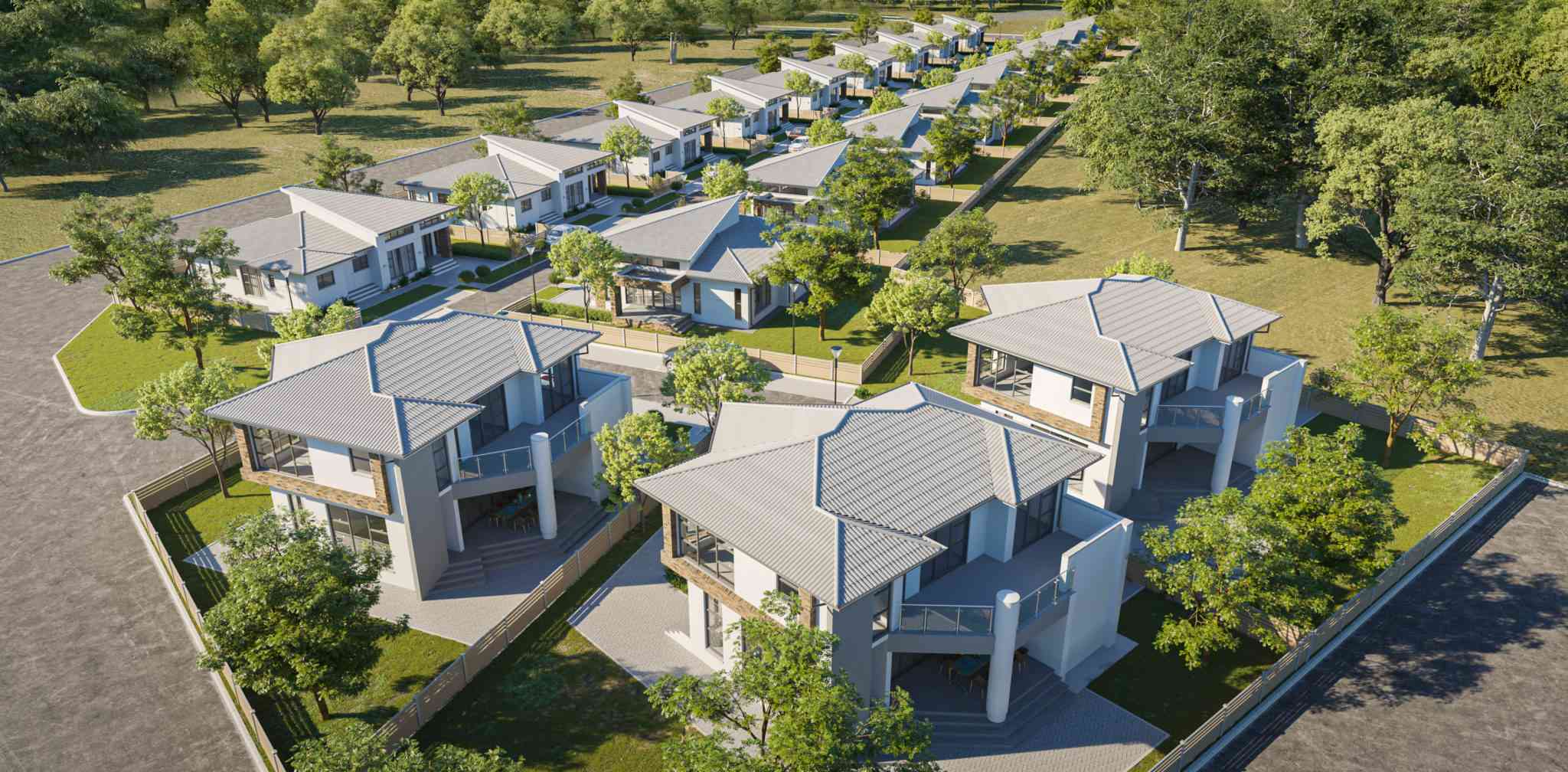
ZIMBABWE’S rich have flooded the country’s property market, presenting fresh opportunities for real estate developers with special interest in high-end real estate gems, according to Mashonaland Holdings (Mashhold), the Zimbabwe Stock Exchange-listed property firm.
The outfit said on Monday demand was outstripping supply on this front, enhancing opportunities for higher returns.
This was a contrast to developments across other property market sub-sectors where Covid-19 pandemic tailwinds were still being felt, but investors were still under pressure.
It’s been a tough phase for domestic investors who have been confronted by diminishing investment options as unblinking bulls charge relentlessly, assaulting volatile stock markets, a traditional safe haven during turbulent times.
The main bourse, the ZSE saw its market capitalisation tumble to about ZW$1,7 trillion on Thursday, a ZW$2 trillion plunge from ZW$3,9 trillion mid-April.
This is a valid reason for the stampede to high-end property gems, where returns have firmed since companies began trooping out of the central business districts (CBDs) about five years ago, fleeing armies of pavement traders. In a commentary to financial statements for the half year ended June 30 2022 Mashhold, however, said investors taking respite in this market still faced high construction costs. “Middle-to-high income residential properties continue to present investors with an avenue for value preservation as the inflation trend remains uncertain,” Grace Bema, chairman at Mashhold, said as she shared results with investors.
“The high demand against a static supply has seen property values in this market segment going up,” Bema added.
The drawback has been the high construction costs, which have been experienced across markets.
- Young entrepreneur dreams big
- Chibuku NeShamwari holds onto ethos of culture
- Matobo, Bulilima under indefinite foot and mouth quarantine
- LSU students win innovation prize
Keep Reading
On Wednesday, the Johannesburg Securities Exchange-listed cement maker PPC said its Zimbabwean unit has hiked prices several times this year alone in United States dollar terms, demonstrating the headwinds frustrating developers, as inflation rises and interest rates and other costs head northwards, hitting profits.
Mashholds said inflation adjusted revenues rose to ZW$709 million (about US$1 181 666,67) during the period, from ZW$471 million (US$785 000) during the comparable period in 2021, driven by strategic rental income reviews, along with higher occupancy rates, which increased to 83% during the period, from 79% during the comparable period in 2021. The firm said overally, the property market was still in the grip of a post-pandemic crisis.
“The property market remains hamstrung by lethargic demand across all sectors of the market owing to low economic activity in the economy,” Mashholds said.
“Whilst Covid-19 restrictions eased during the period under review, the prevailing global headwinds and internal fiscal and monetary policy issues have further delayed full economic recovery. Despite the faltering economic activity, the occupier submarket’s retail and industrial sectors have remained relatively resilient.
The tourism sector has also been positively impacted by the easing of Covid-19 restrictions leading to an improvement in hotel occupancies. The office sector, however, remains subdued, particularly in the CBD. The development submarket is the most affected as construction costs remain on an upward spiral in both currencies. As a result, the submarket continues to be dominated by residential property projects and a few small-sized commercial developments.
The high interests on mortgage lending, coupled with declining disposable incomes, however, continued to work as hindrance against further growth in residential sector developments,” she added.
In August, Knight Frank Zimbabwe said residential properties had been battered by plummeting disposable incomes.
Knight Frank said in its Africa Report 2022/23 that depressed demand had been compounded by sellers’ push for trade in foreign currency.
But the Zimbabwean market is dominated by local currency clients, as the majority earn in Zimbabwe dollars.
The mortgage market has been weak and most buyers have to find cash to acquire properties. Sellers of goods and services in a cross section of the economy have turned to US-dollar transactions to avoid loss of value. However, Knight Frank managing director Siza Masuku said in contrast to troubles confronting residential property dealers, the suburban office segment was booming.
“Hyperinflation and foreign currency shortages are affecting economic stability, resulting in the erosion of real disposable incomes and hence negatively impacting confidence levels,” Masuku said.
“The real estate market remains in limbo. However, the suburban office market remains buoyant due to ongoing relocation activity away from the CBD,” Masuku added. Zimbabwe’s property market has been hit from many fronts. Firms have been downsizing occupied space in buildings to manage surging costs in response to the crisis.






